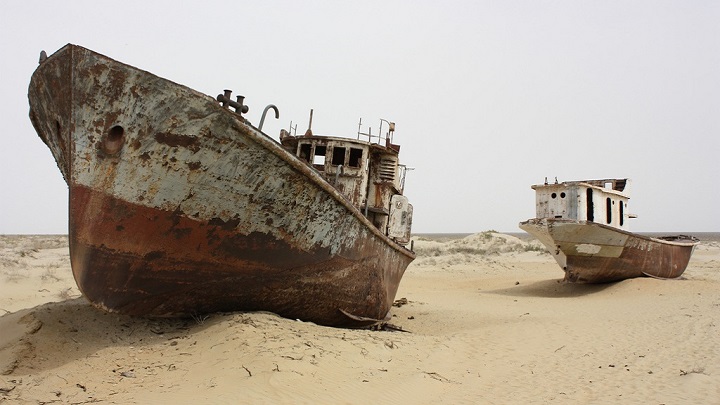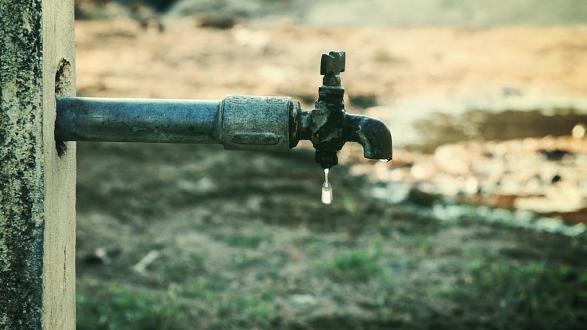This week, the Pacific Council welcomed Rachel Cardone as our new Global Water Scarcity Project Fellow. The role was made possible with support from the Conrad N. Hilton Foundation, a leader in helping the world's vulnerable and disadvantaged communities gain access to safe water.
Rachel will lead a comprehensive planning effort to scope the objectives and activities of the Pacific Council’s future policy work on global water scarcity.
For over 20 years, Rachel has worked on water issues with a mix of private, public, and non-profit organizations, ranging from start-up efforts to large development finance institutions, and representing a wide range of water issues. Before starting RedThread Advisors, a private consultancy firm, she helped to create the Bill & Melinda Gates Foundation’s Water, Sanitation & Hygiene team, where she also developed and managed a sizeable portfolio of systems-changing investments which continue to have impact in countries around the world. She has also served as Chair of the Citizens Advisory Committee for Seattle Public Utilities, and is a current Trustee of the Whole World Water Fund. Rachel graduated cum laude from the University of Michigan-Ann Arbor, with a degree in history (anthropology minor) and earned an MPA from Columbia University, with a concentration in energy policy and finance.
We sat down with Rachel to discuss her exciting new role and the challenges ahead.
____________________
Pacific Council: How did you become interested in water scarcity?
Rachel Cardone: The decision to focus on water as my career came after I backpacked through southern Europe, the Near East, and eastern and southern Africa for about two years. After studying global issues as an undergrad, I wanted to observe what was actually going on around the world in terms of economics and politics, and social dynamics. As I was backpacking, the constant theme that kept coming up in my conversations with people and in the newspapers was water.
In our lives, water is so invisible. We turn on the tap and we get water, or we flush the toilet. But it was really visible in my travels, partially because I was kind of dirtbagging it. For example, while I lived on a kibbutz in Israel, I saw the difference between how a kibbutz uses water versus the nearby Palestinian villages, and even how different Palestinian villages use water depending on their level of income. The health implications of water scarcity became so real to me, and I thought, "This is a topic that I’m not going to get bored with over the course of my career."
Traveling around the world and seeing the imbalance in how much water features in the daily livelihoods of people inspired me to pursue this as a career.
I grew up in a tiny tourist town on the east end of Long Island. We had three Superfund sites – basically loads of chemicals in the groundwater – so I had exposure to this field when I was young. In college, I took classes on environmental anthropology, and have always been interested in ecosystems and environmental protection. But it was really traveling around the world and seeing the imbalance in how much water features in the livelihoods – the struggles, really – of people on daily basis that inspired me to pursue a career in the water sector.
PC: You saw these issues in places like Palestine and Africa, and now we’re seeing it right here at home. What are some of the biggest water challenges in California?
Rachel Cardone: One of the things that stands out for me is that in the western part of the United States, there is an incredible amount of physical water infrastructure that dominates the landscape. You see these huge pipes in California where they’re pumping water over the mountains and you think, "How can that possibly be sustainable?" Then there’s the issue of water rights and how our laws are outdated to what our water needs are today.

We can look to places like the Aral Sea, which has completely disappeared and is now a chemical waste dump. We can look at huge declines in other watersheds around the world and say either: "That can be our future" or "What can we learn about water efficiency, about resilience, about our own behaviors and values and ethics that can allow us to have a better outcome?"
PC: Is water a global issue or a local issue or both?
Rachel Cardone: It’s both. It’s sometimes hard for people to connect those dots and say, "Why should I care about water issues in wherever?" But what if there are disruptions in the global supply chain? For example, China is fairly water scarce, and water pollution is a big issue. What will happen if your made-in-China computer breaks? Where will you get another one? Likewise, climate adaptation is really about water. We live in a highly interconnected global economy that is totally dependent on water. I don’t think we see that connection: for most people water is still an invisible issue.
PC: What do you hope to accomplish as the Pacific Council’s Global Water Scarcity Project Fellow?
Rachel Cardone: This is an exciting role in which I get to explore and seek to understand what the Pacific Council’s real value proposition is to its members and look to see if there are additional groups or new members where a conversation about water could be of interest. The Pacific Council, with the help of the Conrad N. Hilton Foundation, is very much looking at the blue sky and saying, "What are the issues that are of critical importance, and how do we connect the dots between water scarcity and water security in California and elsewhere?"
We live in a highly interconnected global economy that is totally dependent on water.
This discovery and strategy development process will be about identifying what possible trends are, to develop a strategy for a potential long-term program. We’re going to be zeroing in on some clear activities and outcomes and goals with the Pacific Council and its membership, and potentially with a wider audience. We also want to see how we can engage the global community or other watersheds and bring them in to partner on this process.
PC: Tell me about what the Pacific Council has already done on water scarcity and what role we should play in this issue.
Rachel Cardone: Water scarcity has been on the Pacific Council’s radar for a couple of years. Last year the Council began to explore how California’s water issues might have resonance on a global scale. We’re now in a position to be able to spend time and figure out where the best value add is, and to identify the different topics.
What is it that we want to be talking about? We might decide to do a separate program around water scarcity; we might try to embed water across other topics like discussions about Iran or China, or even supply chains. These next six months will give the Pacific Council the opportunity to figure out the best strategy and approach; to implement something that’s effective, useful, and of interest to our members.
____________________
Want more on water? Read the takeaways from the Pacific Council's 2015 National Delegation on water issues.
Learn how you can directly contribute to the Pacific Council's work around global water scarcity. Support us now.




